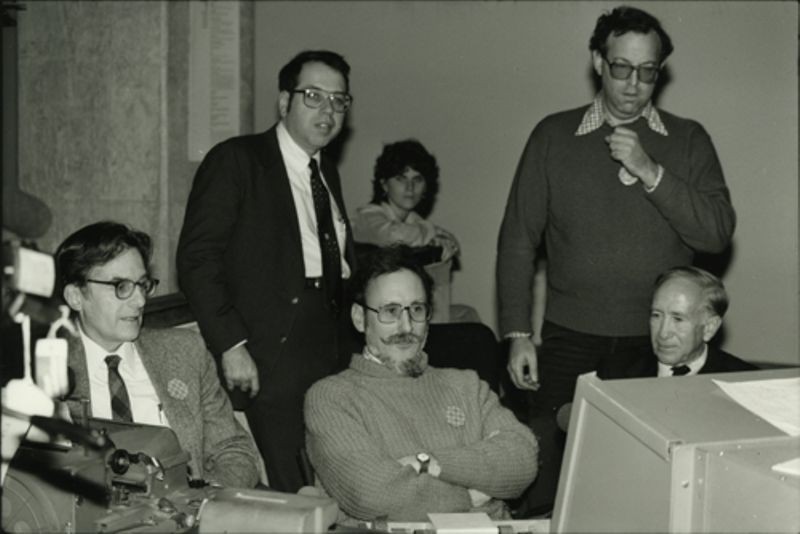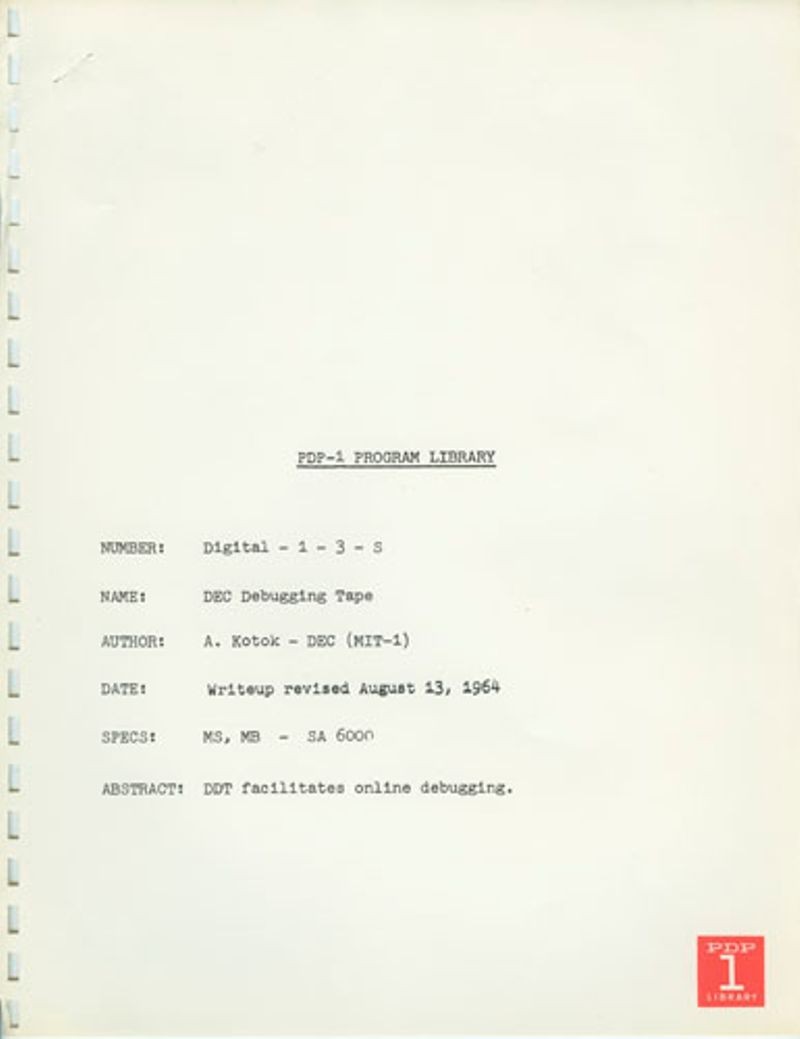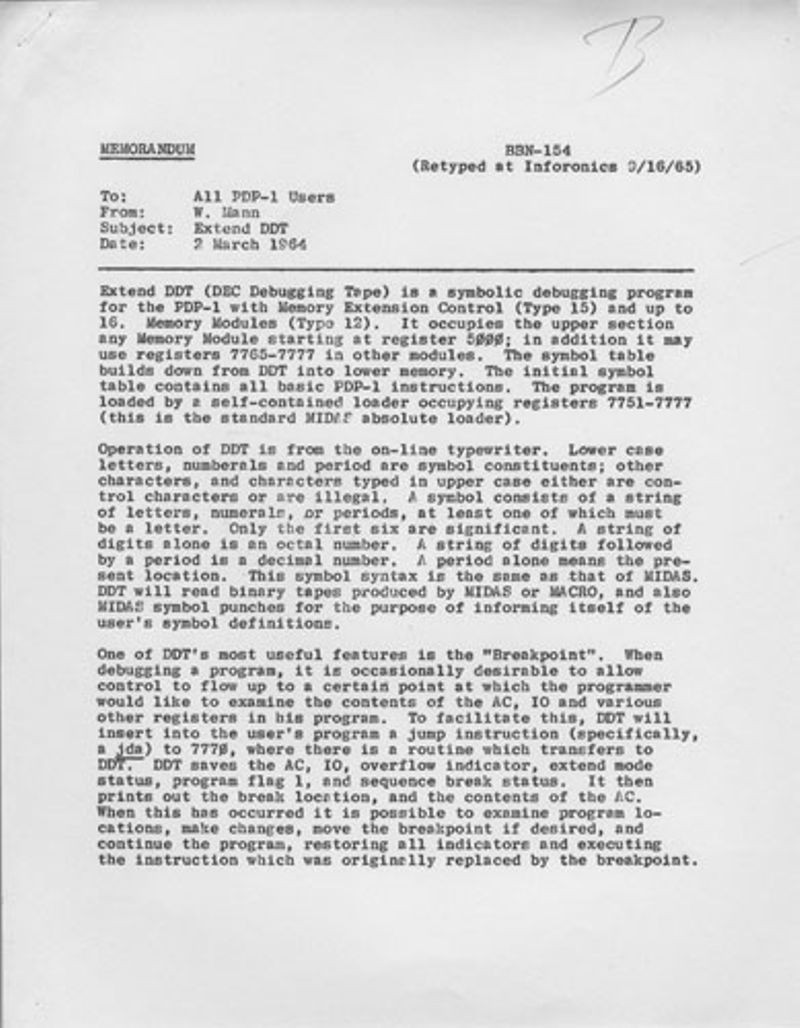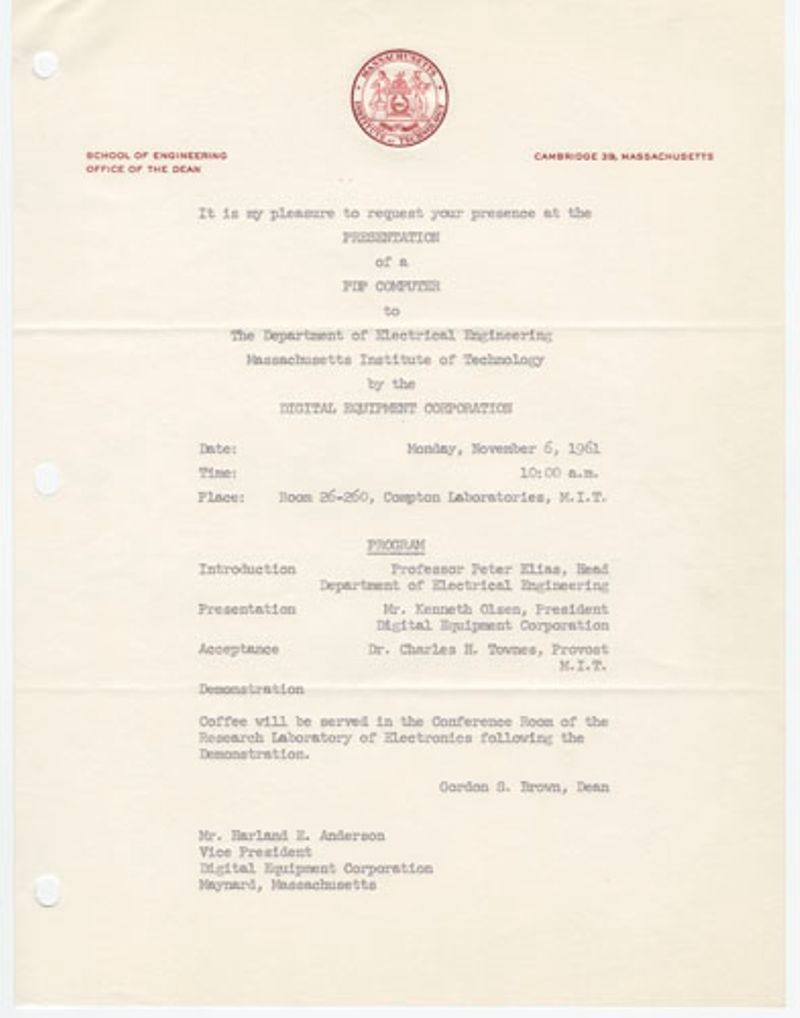Jack Dennis

As an undergraduate I wrote a large linear program on the Whirlwind…After midnight, I could get my hands directly on the Whirlwind…This led me to believe that informal direct programming by students was the way to work with machines. Jack Dennis
Born: October 13, 1931, Elizabeth, New Jersey
As an MIT graduate student, Jack Dennis was a user of the Whirlwind and IBM 709, two early and very large-scale computers. Upon completion of his doctorate in electrical engineering in 1958, he joined the MIT faculty in the Department of Electrical Engineering.
Early on, Dennis was placed in charge of the computers assigned to the engineering department and made liberal allowance for student access to the TX-0 and later the PDP-1. Many of those same students created some of the first programs for the PDP-1.
In 1963, Dennis designed an extensive set of hardware alterations to MIT’s PDP-1 to create one of the first interactive time-shared computer systems. One of the novel features of this system was the ability of a user to employ a symbolic debugging tool called DDT (Digital Debugging Tape) written by Alan Kotok. In fact, Dennis saw timesharing as a way to make computers available to more students.
Later, Dennis was one of the founding members of the Multics project, an early timesharing operating system, to which he contributed several key concepts. Multics, though not a great commercial success, was an inspiration (largely as a reaction) for Ken Thompson, Dennis Ritchie and Doug McIlroy to develop Unix—a hugely popular and influential operating system even today.
Dennis retired from MIT in 1987 to do independent projects and consulting. He developed a compiler for the SISAL programming language and was a visiting scientist at NASA's Research Institute for Advanced Computer Science. Dennis’ many accomplishments include authoring and co-authoring more than 80 articles, papers, and technical reports, receiving the 1984 Eckert-Mauchly Award for contributions to the field of computer architecture, and becoming a Fellow of the IEEE and of the ACM.
Dennis holds M.S. (1954) and Sc.D. (1958) degrees in electrical engineering from (MIT).





